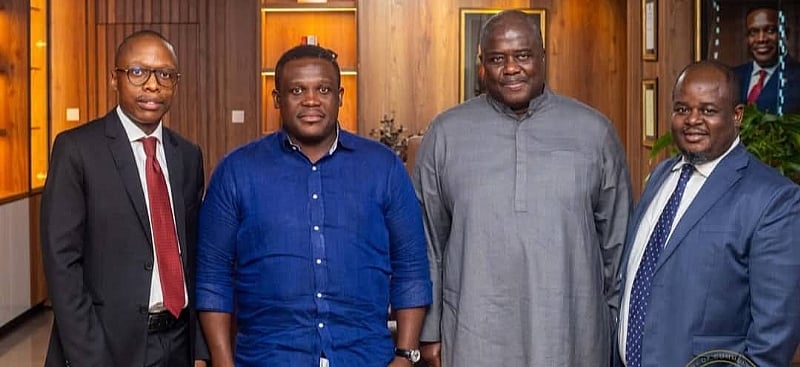Minister for Communication, Digital Technology, and Innovations, Samuel Nartey George, has issued a firm call to MultiChoice Ghana to implement a 30% reduction in DSTV subscription rates, citing the sharp appreciation of the Ghanaian cedi and mounting frustration among subscribers over high costs and stale content.
The call was made during a high-level meeting on July 4 with a MultiChoice delegation led by Dr. Keabetswe Modimoeng, the Group Executive for Regulatory and Corporate Affairs. George did not mince words as he demanded a pricing overhaul that reflects current macroeconomic conditions and restores consumer confidence.
“For the past five months, the Ghanaian cedi has appreciated by over 30%, yet DSTV prices have remained unchanged,” George noted. “This disconnect has not gone unnoticed by the public, and we as a government have a responsibility to step in and ensure fairness.”
While acknowledging that MultiChoice has rolled out promotional upgrades, the Minister insisted that Ghanaians are demanding more than temporary perks. “Consumers want real relief in the form of permanent price reductions, not just bonus packages. A 30% cut is both reasonable and justified,” he said.
He also pointed to a growing perception that DSTV content no longer offers value for money. “Many subscribers say the Premier League is the only thing keeping them on the service. The rest of the content is outdated and uninspiring,” he said.
George directed MultiChoice to submit a formal response by July 21 outlining a pricing proposal that reflects public expectations. He noted that this would form the basis for continued negotiations before the end of the month.
Beyond pricing, the Minister also flagged the issue of cross-border piracy, raising alarm over the influx of unauthorized DSTV decoders undermining Ghana’s media landscape and costing the government revenue. He called for stricter enforcement and closer regulatory oversight.
On content development, George urged MultiChoice to ramp up investment in Ghanaian productions, arguing that more local content would drive employment and nurture Ghana’s creative industries. He revealed that the government is working on a comprehensive broadcasting bill, which will mandate progressive increases in local content quotas across all broadcast platforms.
Dr. Modimoeng, in response, welcomed the engagement and pledged to deliver MultiChoice’s official position within the given timeline. He acknowledged the company’s obligation to meet consumer expectations while maintaining business sustainability and vowed to intensify efforts against piracy.
The meeting signaled a strong stance by the government to prioritize consumer rights, media accountability, and indigenous content development as key pillars of its digital transformation agenda.


